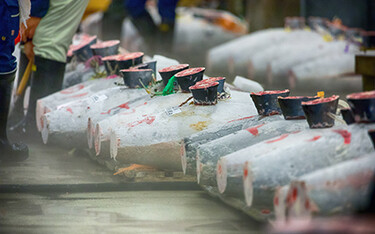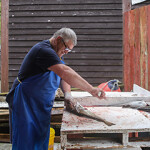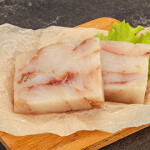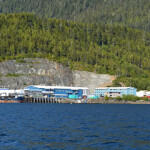The Global Seafood Alliance announced on 4 October the Japanese Consumers' Cooperative Union will feature its first Best Aquaculture Practices (BAP)-labeled product.
The JCCU is a national federation of consumer cooperatives that supply food and other daily necessities to its members in Japan through supermarkets and home delivery.
GSA is an international, nonprofit trade association that seeks to advance environmentally and socially responsible
… Read MoreJapan-based seafood company Kyokuyo and its insurer, Sompo Japan Insurance Inc., are suing Copenhagen, Denmark-based container shipping company Maersk A/S for failing to maintain a refrigerated container of bluefin tuna …
Photo courtesy
… Read MoreTwo systems have been launched in Japan that are devoted to informing Japanese consumers about the sustainability of fish they are eating and making it easier for fisheries to apply for sustainability certifications.
Japan Fisheries Research and Education Agency (FRA) Senior Adviser Yoshioki Oozeki first introduced the development of the two systems – SH "U" N (short for Sustainable, Healthy, “Umai,” Nippon) and MuSESC
… Read MoreThe Japan Fisheries Agency (JFA) has added policies regarding non-fish aquaculture products –mainly shellfish and seaweed – to its aquaculture strategy. The new policies are meant to more fully exploit potential aquaculture sites and to take into account new rules on who can manage aquaculture sites.
Following a major reform of Japan's Fisheries Act in 2018, private companies will be able to gain access rights to aquaculture grounds
… Read MoreA new “MPA Guide,” resulting from a collaboration of 42 authors led by Kirsten Grorud-Colvert of Oregon State University, aims to facilitate communication and common understanding about marine protected areas.
The guide was introduced in a paper in the 10 September issue of Science magazine, "The MPA Guide: A framework to achieve global goals for the ocean." In it, the authors review the consistency, of MPAs and propose a
… Read MoreJapan has been importing more Humboldt squid from Peru in recent years, mainly for use in processed products that formerly used domestic Japanese flying squid.
The first year that Japanese Customs reports imports from Peru under the harmonized tariff code 0307.43.030 is 2017. The code covers Japanese flying squid (Todarodes pacificus), jumbo flying squid (Dosidicus gigas, also called Humboldt squid), Japanese squid (Loliolus spp.), shortfin
… Read MoreThe Ocean to Table Council is holding “Edomae Fish Passport Fair” events in September and October with the goal of informing Japanese consumers about sustainably-caught seafood.
The fair will be experience-based, allowing visitors to see, learn about, eat, and enjoy sustainably-caught fish. A smartphone traceability application using blockchain technology will be demonstrated at the stores where the event is held.
The fresh fish
… Read MoreTokyo, Japan-based Next Meats Co. has announced that it will introduce plant-based milk, pork, and tuna analogs in October …
Photo courtesy of Next Meats
… Read MoreThe regional fishery management organization that sets tuna harvest-limits in the Eastern Pacific Ocean once again deferred a decision on the Pacific bluefin harvest after failing to reach consensus on the details of a proposed increase.
At the 23 to 27 August meeting of the full commission of the Inter-American Tropical Tuna Commission (IATTC) a proposal by the United States reflecting the recommendations of the online 27 to 29 July Sixth Joint
… Read MoreThe Tokyo Paralympics wrapped up on 5 September, following the first-ever Olympic Games without spectators, and despite challenges related to COVID-19, the event was still a win for seafood sustainability – both the advocates and the organizations promoting it.
Exactly how much certified seafood was sold during the Olympics, and what percentage of that total was comprised of products certified as sustainable, will not be known until an
… Read More














